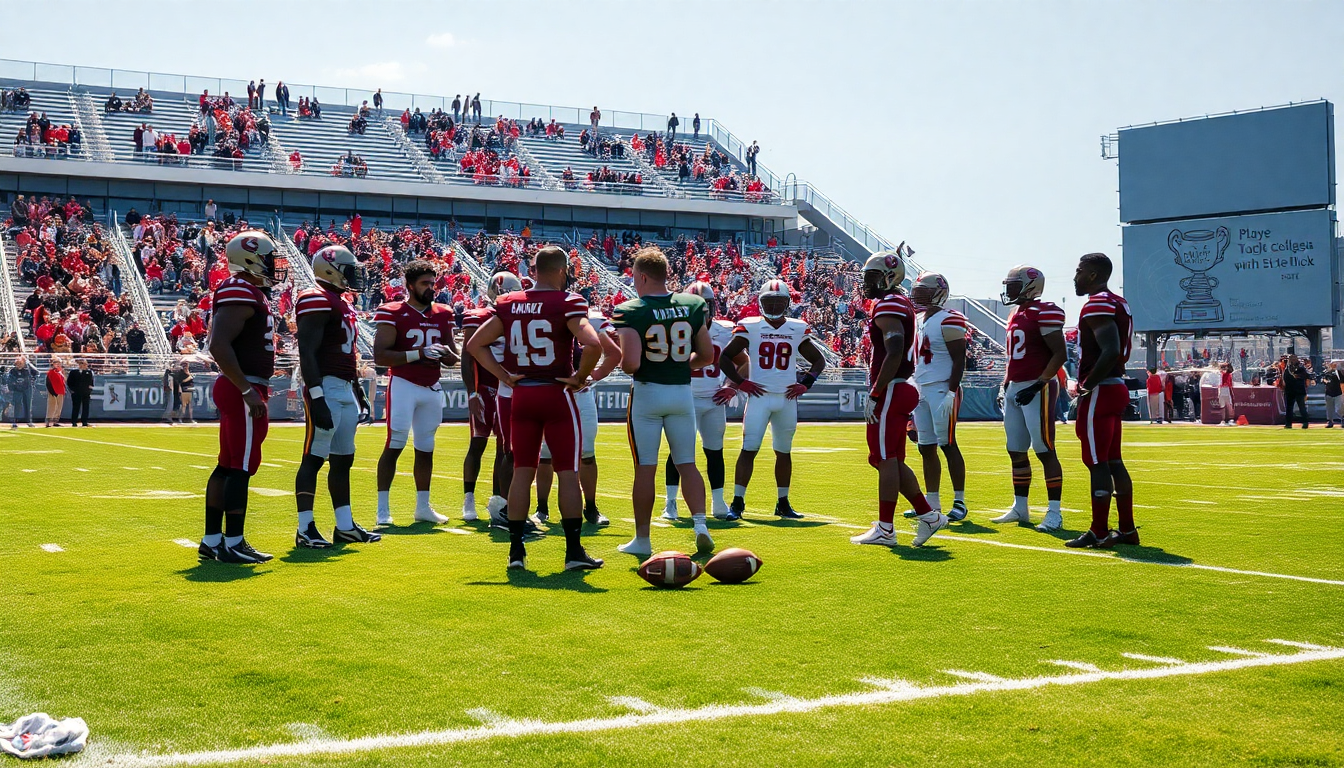Table of Contents
In a bold move, Deion Sanders, the head coach of the Colorado Buffaloes, is shining a spotlight on a critical issue in college football: player compensation. As the landscape of college athletics evolves—especially with the emergence of the NIL (Name, Image, Likeness) era—the conversation about financial equity among players is more important than ever.
Sanders has proposed a system where players are directly rewarded for their participation and success in the College Football Playoff (CFP). But what does this mean for the future of college sports? Let’s explore the implications of such a proposal, the current state of player payments, and the urgent need for a more structured financial framework in college athletics.
The Current State of Player Compensation
College football has seen significant changes over the last few years, particularly with the introduction of NIL deals that allow athletes to profit from their personal brands. While some players are cashing in with lucrative endorsements, many are left in the shadows, receiving little to no compensation for their hard work and contributions to their programs.
Isn’t it time we addressed this disparity? This is precisely what Sanders highlights as a major flaw in the system.
In a recent interview, Sanders stressed the importance of equality among players, advocating for a model where every athlete receives a fixed payment for participating in the CFP.
He believes this would not only level the playing field but also motivate athletes to give their best effort, knowing that their hard work would be financially rewarded. This kind of model is already seen in professional leagues, where playoff bonuses are distributed regardless of a player’s role in the game.
Moreover, the financial landscape of college sports is evolving rapidly, with schools now capable of offering millions in NIL deals. Yet, as coaches like Nick Saban point out, the focus shouldn’t solely be on immediate financial gain. Instead, it should be on the long-term value that a college education and athletic career can provide.
Saban’s perspective aligns closely with Sanders’ push for a more equitable compensation structure, emphasizing the need for future opportunities for players.
Proposed Changes and Their Implications
Sanders’ proposal to compensate players based on their performance in the CFP could fundamentally shift the dynamics of college football. Currently, conferences whose teams qualify for the playoff receive substantial financial rewards, but those funds often don’t trickle down to the players. By implementing a payment structure that directly benefits athletes, schools would not only invest in their current players but also enhance the overall quality of college football. Imagine how this could transform the game!
This approach could lead to increased player retention and attract top-tier talent to programs that prioritize financial equity. It would also instill a sense of accountability and motivation among players, inspiring them to perform at their best in hopes of achieving greater financial rewards through playoff success. Can you envision a college football landscape where every player feels valued and motivated?
However, realizing such changes would require a significant reevaluation of existing NCAA regulations and a collaborative effort from all stakeholders in college sports. While some may argue that this blurs the lines between amateurism and professionalism, the truth is that the current system has already shifted significantly in favor of commercialization. So, isn’t restructuring player compensation a logical step forward?
Looking Ahead: The Future of College Football Compensation
The discussion surrounding player payments in college football is just getting started. Coaches like Sanders and Saban are advocating for a more organized approach to financial equity that could redefine athletes’ roles within college sports. As this dialogue continues, it’s crucial for all stakeholders to consider the long-term implications of these changes—not just for the athletes, but for the integrity of college football as a whole.
In conclusion, Deion Sanders’ innovative ideas challenge the status quo and underscore the urgent need for change in player compensation. As college football navigates this new era, the importance of a comprehensive and equitable payment structure becomes increasingly clear. The future of college sports hinges on our ability to adapt and ensure that all players are recognized and rewarded for their contributions. Are we ready to take this step forward?





